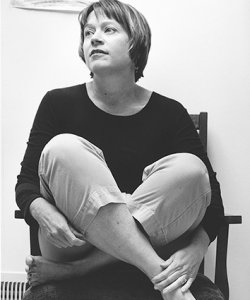Novel History Lessons: A Profile of Nora Okja Keller
An interview with the Hawaiian novelist Nora Okja Keller.
Jump to navigation Skip to content
An interview with the Hawaiian novelist Nora Okja Keller.
A tribute to Indian poet Agha Shahid Ali.
So how did John Dufresne—the eldest of four children of French-Canadian parents, a boy who grew up in the Catholic, blue-collar Grafton Hill neighborhood of Worcester, Massachusetts, a boy for whom it was beyond imagining that a man might find his vocation in words—become a noted short story writer, a sought-after teacher of creative writing, and the author of three acclaimed novels, two of which are set well below the Mason-Dixon line? In part, the answer is a keen ear for the music of language and an eye for the telling detail.
Ethiopian exile Nega Mezlekia's memoir, Notes From the Hyena's Belly, details his remarkable boyhood in Jijiga, a city in the eastern part of the Horn of Africa built on a "dry, sandless desert where even the smallest wind creates devils—whirlwinds of dust that rise high into the heavens and are visible from miles away."
Elizabeth Alexander's new collection, Antebellum Dream Book, deals with the image of the body, a theme she visits often in her previous works. "If you let a body speak," she says, "it gives you access to all sorts of concrete sensations that are vital, the stuff of poetry, the way a poem convinces." In this interview with Natasha Trethewey, Alexander speaks to her use of race, urban life, history, and of course, the body.
A profile of Pakistani British author Hanif Kureishi.
An interview with Jonathan Franzen.
A profile of Lucy Grealy, author of Autobiography of a Face.

In such a saturated culture, how can a poet clear away uninfluenced space from which to write a poem that is authentic, original?

The author of the story collections CivilWarLand in Bad Decline and Pastoralia talks about working in a slaughterhouse, Monty Python as validation, earnestness as the enemy, and his uncanny ability to find humor in unlikely places.